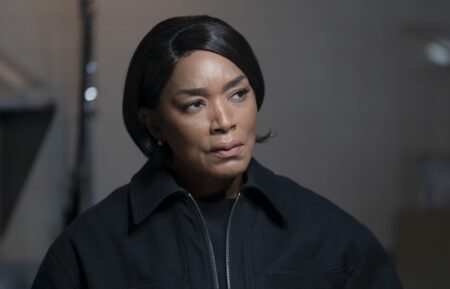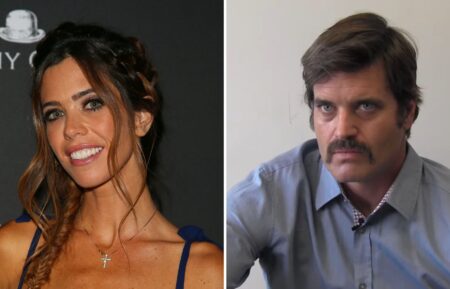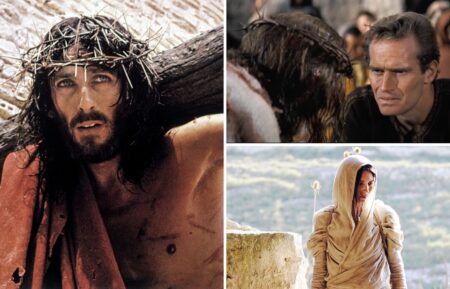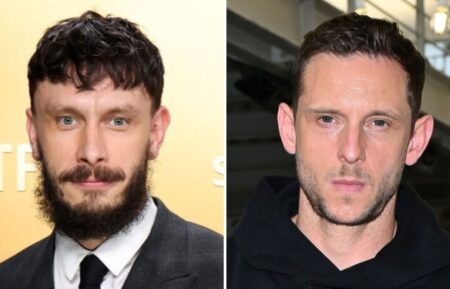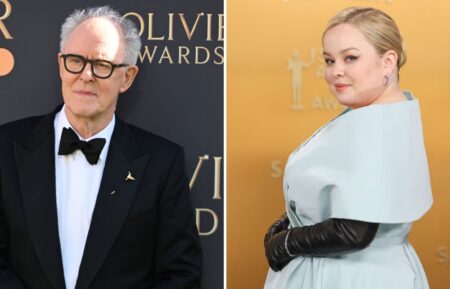‘Star Trek: Strange New Worlds’: Christina Chong Talks La’an Being Vulnerable With Kirk & Accepting Herself
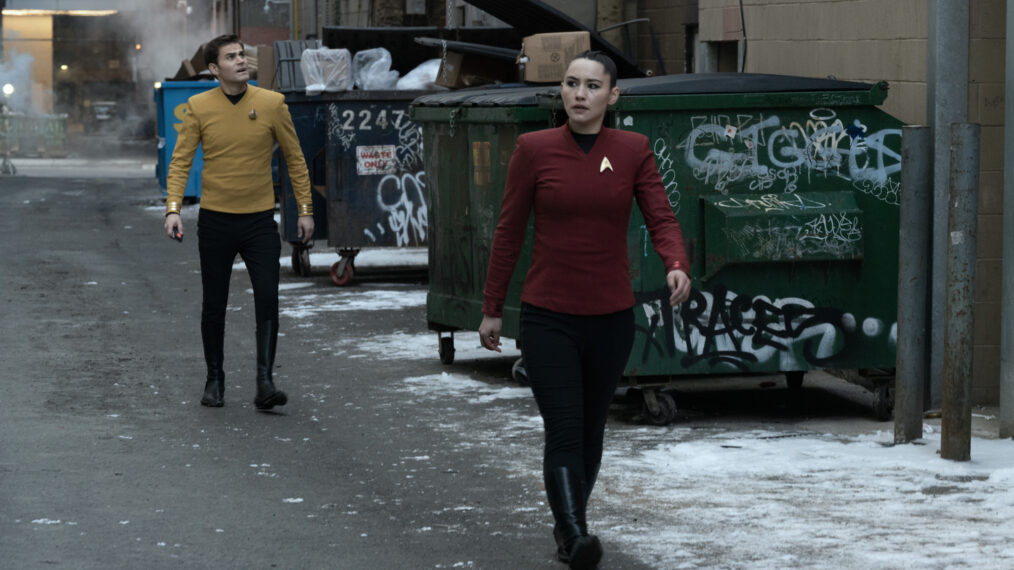
Spoiler Alert
[Warning: The below contains MAJOR spoilers for Star Trek: Strange New Worlds Season 2 Episode 3 “Tomorrow and Tomorrow and Tomorrow.”]
La’an’s (Christina Chong) day takes an odd turn when she ends up accidentally traveling to the past (and an alternate timeline!) and meets James T. Kirk (Paul Wesley) in the latest episode of Star Trek: Strange New Worlds.
What follows is a journey for La’an that includes a bit of romance (with Kirk, who dies!) and acceptance (when coming face-to-face with Khan as a kid and knowing what taking him out then could mean for her own future but refusing to do so). And when she returns to her timeline, on the Enterprise, she’s faced with the fact that she can’t tell anyone what happened to her and this Kirk just meets her for the first time when she comes up with an excuse to reach out.
Chong shares some fun stories about filming this episode
Congratulations on Season 3!
Christina Chong: I know, right? That’s so cool. I can’t wait. Very fun things happening in Season 3, too.
Talk about filming this episode. It’s mostly you, Paul, and Carol [Kane] from the main and recurring cast, and La’an’s in an unfamiliar situation where she can’t have the control she obviously loves to have.
Number one, on a personal level, it was absolutely freezing cold filming that episode because majority of it was outside and it was -17 degrees but felt like -20 something. And the scene where the police stop us, while that was happening, it was snowing. So they would brush snow off of our hair, “Action!” and we’re trying to pretend we’re not cold and freezing and then “Cut,” there’d be a little inch of snow on our heads. It was amazing because it was full on [and] there were only a certain number of hours that we could actually shoot, so it was very intense [and] quick paced.
[It was also] very interesting for me because it was the first real opportunity for La’an to slowly come out of her box and show a bit more humanity and vulnerability in a romantic setting. And it took a while to know where to place it, like, how far do we go? She’s still got to be La’an, but we need to see that she’s softening a little bit. So it took a little while to find where to pitch it.
But it was a lot of fun working with Paul. Paul is hilarious. Carol, oh my goodness, is brilliant. I learned so much from her, and I have to apologize again to her because every take, every closeup that was on Carol and I was feeding lines, I would be absolutely laughing like a hyena behind the camera because she’d just come out with these things that were just hilarious and her behavior, she’s so in it. Her comic timing is perfect.
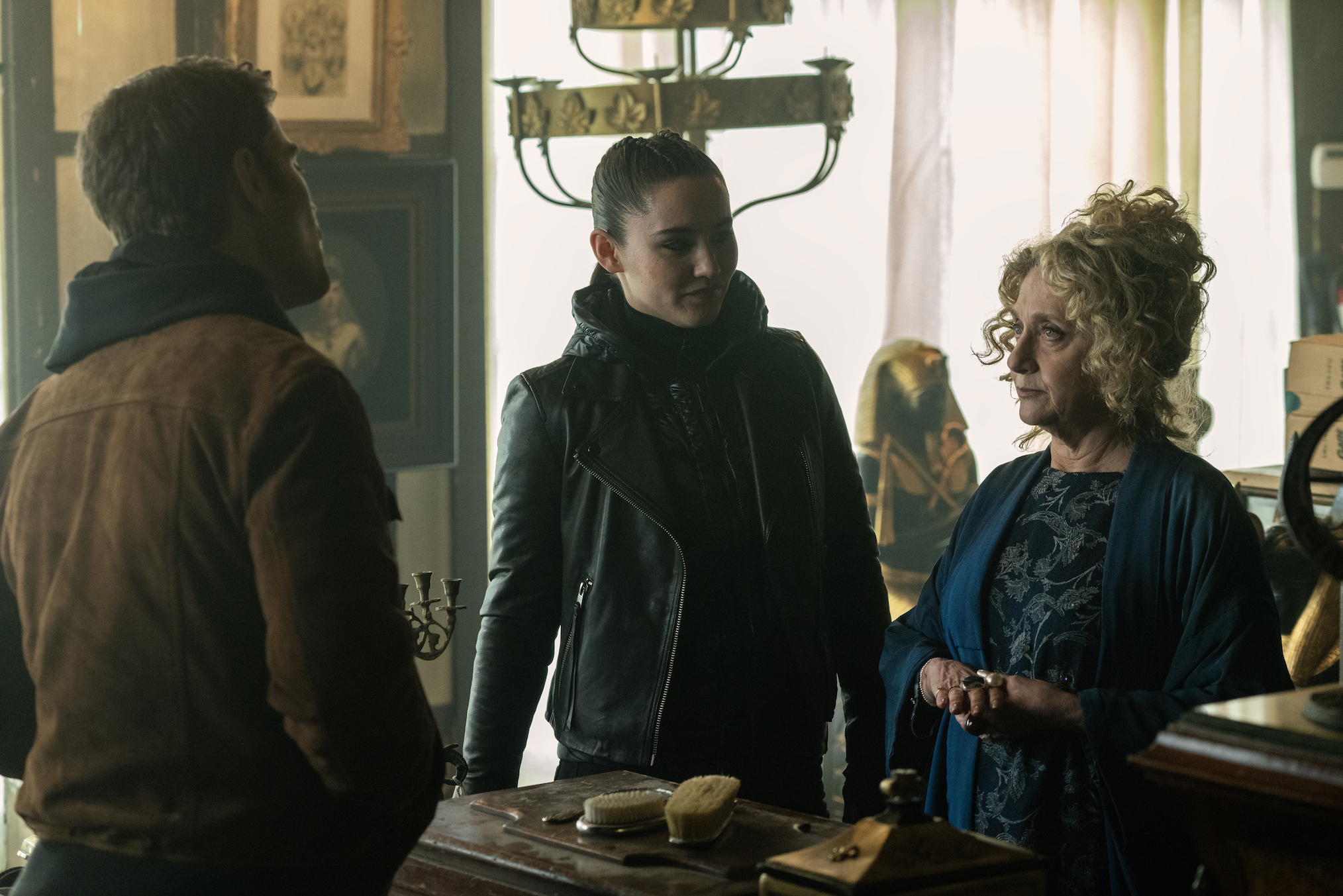
Michael Gibson/Paramount+
And then Paul and I had this situation where just whenever we would look at each other, we would laugh. The cast and crew were like, “OK, enough now, we need to do this.” It’s like laughing in church, you know? You can’t laugh in church. So when you can’t laugh in church, you can’t not laugh in church. So that was really fun.
And I’ve never had that, being in every single scene of an episode. That I absolutely loved because you’re on the whole time and I think sometimes when you’re not driving the scene or the episode, you get time to rest and downtime and the ups and the downs can be more tiring almost than just going for it and staying focused the whole time. It was an exercise in pacing myself as well throughout the few weeks that we were shooting that episode. And Adelaide Kane was amazing as well. She’s very lovely to work with.
There was also that the car scene, oh my goodness. So that was filmed on the AR wall, and I was like, how is that going to work? They’d gone out with the car and got plates from Toronto and then projected the plates on the AR wall. They got the car in the studio, the wall’s moving — not actually moving, but the image looks as if it’s moving, because they’ve put cameras on the car outside so then it looks like you’re in Toronto — but the car’s not moving in the studio, so it creates motion sickness. Paul and I both get very bad nausea in that setting, and so trying to do the scene, we had to take motion sickness tablets. But even then we couldn’t keep our eyes open. If you kept your eyes open looking at the screen, it was awful. So there was one take where the camera’s behind us looking at the wall and Paul’s driving and I’m delivering my lines kind of opening my eyes because the camera’s more on me. I look to Paul to deliver a line, and he’s got his head down with his eyes closed, and I had to stay in the moment. It was just hilarious. And then we get out of the car and get onto the floor and just try and let the sickness subside. But yeah, it was a lot of fun.
La’an has that great moment where she says “Khan’s legacy is genocide, torture, and me,” that acceptance, which I loved seeing from her. What has it taken for her to get to that point?
Years and years and years, and obviously the whole thing with Una [Rebecca Romijn] in Season 1 —
I love that dynamic.
Yes, I love working with Rebecca as well.
I think it’s been a slow kind of building of realizing that self-love in a way. Trust, opening up. And I think when you start to be vulnerable and open up your heart and just love in general, you love yourself more, right? Loving yourself and loving others is kind of the same thing. I think probably Kirk gave her that kind of sense of safety and the fact that she trusted him so quickly and felt for him so quickly gave her that strength to face him and be like, “You know what? No, I am who I am” — [Sings] “I am who I am” — and accept and embrace who she is and seeing the little boy, that vulnerable little boy and being….
It’s that question of Hitler, if he was a baby and you had the opportunity to change history, what would you do? She doesn’t, and she’s like, he’s just a little boy. I really felt that scene. That scene there when I’m looking into that little boy’s eyes, I felt the whole Star Trek fandom kind of looking in and going, “Wow, this is the point where you realize he was just a little boy and he didn’t have to become what he became, but circumstances dictated that he would be Khan.”
That was a really great moment also personally for me to film because having gone through that as being biracial, there was a lot of my childhood where I was ashamed of being part Asian and I also had to come to that acceptance and that place of — well, first it’s acceptance, and then it becomes love. And now obviously I totally love and embrace my culture and everything, but it was, for a long time as a kid, something that I pushed away because I was made to feel less than and ashamed of it.
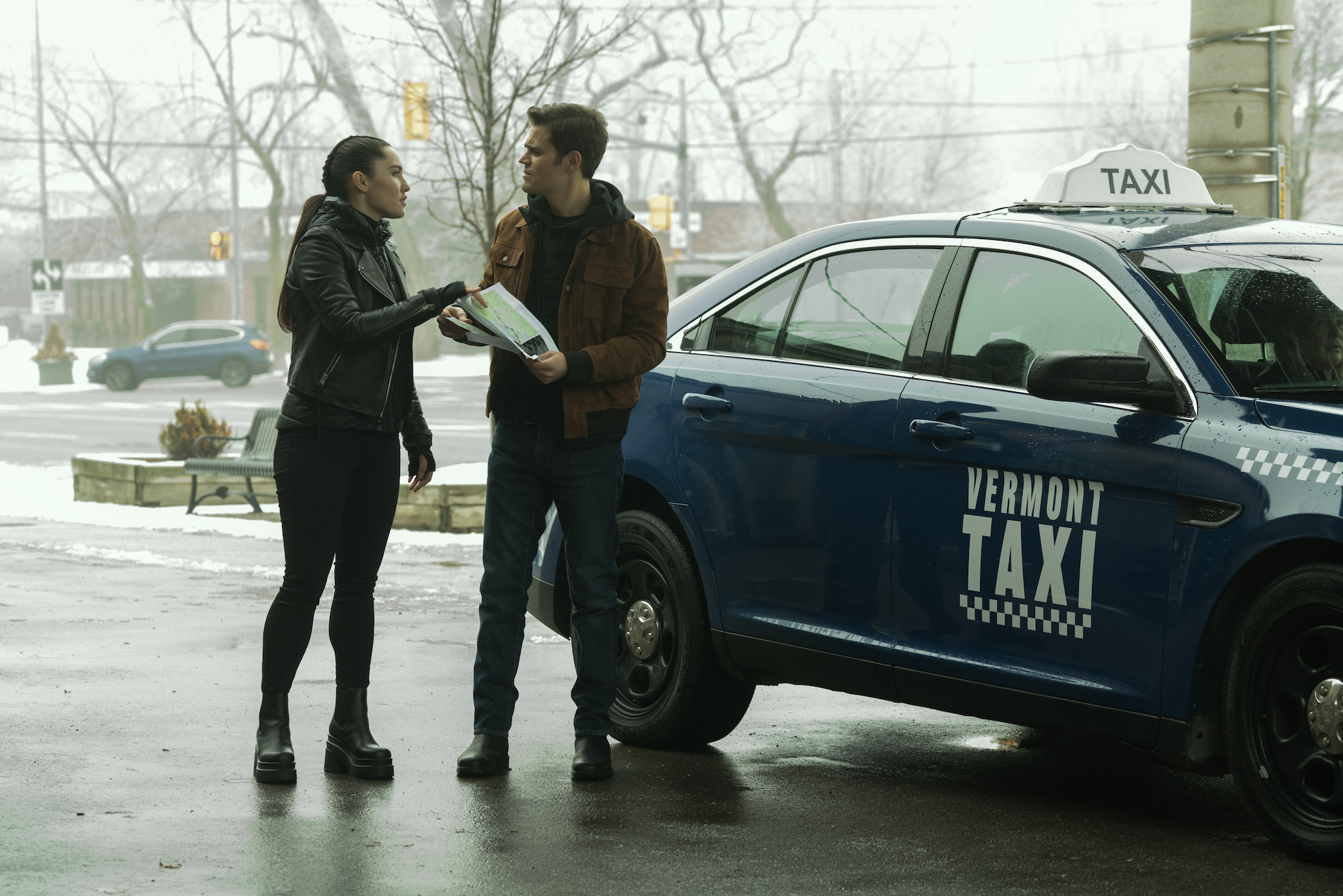
Michael Gibson/Paramount+
It felt like their kiss was earned because we saw La’an and Kirk spending that time together and relying on each other. What does she see in him that draws her to him and also makes her reach out to her timeline’s Kirk at the end?
I think she reaches out at the end just because of what she’s been through with him on this journey. She can be straight with him, she can be herself with him, and he just takes it. He makes her laugh. He’s being authentic and honest with where he is and who he is in that moment, in that timeline, and she feels like she can be authentically herself too. But it’s the love for adventure, the going on the car chase, the coming together for a mission as well, a common purpose, a common goal of solving something together as well that brings them closer.
And he becomes who he becomes, [William] Shatner‘s Kirk. He is a leader, he is a captain at his heart. That’s who I think she feels she is as well. So I think it’s like minds, but the fact that he’s quite easy and funny and honest and genuine allows her to feel like she can be. Because when you’re in a relationship, if you’re a girl and a guy is very vulnerable with you, you feel like you can be more vulnerable with them, too. It makes you feel safe. So because he’s just being real and telling the truth, she feels she can open up and be vulnerable with him.
My heart broke for La’an when she’s crying at the end. Is it just everything catching up to her? She also can’t talk to anyone about anything that happened.
No, I think it’s that thing of, it’s better to have loved and lost than never to have loved at all, right? But I think it’s that feeling of loss for her. It’s like, “I had that, I experienced that, but I can’t have that anymore.” And I think it’s almost like she just wanted to check when she’s calling him back in her timeline, like, was it just in that timeline or do we have that connection here now? She just wanted to know. And there is a part of her like, maybe he does remember, even though she knows he won’t. Maybe he might remember or maybe there’s something and just to see that he’s OK and alive as well, having gone through his death.
So I think you’re right, it’s a mix of all of those things. And the reason she can’t share it, having just shared so much with Kirk in the adventure and now she’s like, “I’ve just been through all of this with this incredible guy. I’ve had this incredible connection and I don’t have that connection anymore.” When she calls him, he doesn’t remember the adventure, and that is possible at least, she learns, but I don’t have that anymore. It’s the loss of it, I think, that really pushes her over the edge.
How will this experience change her moving forward? Because she can’t even explain to the others what happened to lead to any sort of change they might see in her.
No, true. But it did kind of start with the crew. She’s slowly, even towards the end of Season 1, starting to trust them again and open up and Una as her kind of older sister. She’s always kind of prodding her and Pike’s [Anson Mount] little words of wisdom here and there. I think she slowly was opening up anyway, which is why she could open up a lot to Kirk.
Star Trek: Strange New Worlds, Thursdays, Paramount+
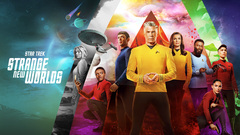


!['Star Trek: Strange New Worlds' Bosses on Killing Off [Spoiler]](https://www.tvinsider.com/wp-content/uploads/2023/06/Star-Trek-Strange-New-Worlds-3-234x155.jpg)

